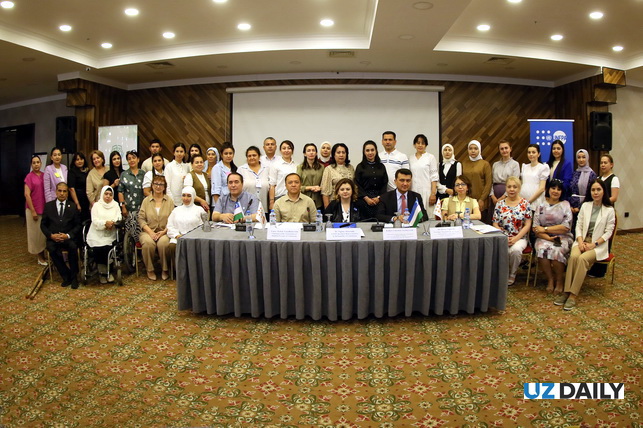
Training launched in Tashkent for NGOs supporting women and girls with disabilities
Training launched in Tashkent for NGOs supporting women and girls with disabilities
Tashkent, Uzbekistan (UzDaily.com) — A three-day training course for representatives of non-governmental, non-profit organizations (NGOs) advocating for the rights of persons with disabilities has commenced today, on 21 May, in Tashkent.
The training is designed to strengthen the capacity of NGOs in delivering inclusive social services to women and girls with disabilities who have experienced violence and discrimination.
The initiative is led by the United Nations Population Fund (UNFPA) within the framework of the UN Joint Programme “Reforming the Social Service Delivery System in Uzbekistan.” This program promotes a rights-based approach to supporting children, youth, women, and men with disabilities and is implemented with financial support from the UN Partnership on the Rights of Persons with Disabilities (UNPRPD). The event is held in cooperation with the National Agency for Social Protection under the President of the Republic of Uzbekistan and the Association of Persons with Disabilities of Uzbekistan.
A core focus of the training is to enhance NGOs’ ability to provide gender-sensitive, inclusive social services.
Participants are deepening their knowledge of gender-based violence, familiarizing themselves with Uzbekistan’s interagency referral system, learning procedures for directing survivors to appropriate support services, and developing practical response skills.
Special attention is given to effective communication tailored to different types of disabilities, the development of individual assistance plans, and strengthening partnerships among civil society organizations to foster a culture of zero tolerance for violence.
Opening the event, UNFPA Representative in Uzbekistan, Dr. Nigina Abaszade, emphasized:
“Women and girls with disabilities often face dual vulnerabilities and lack access to essential support. Social work requires continuous development, attentiveness to people’s changing needs, flexibility, and professional sensitivity. It’s not only about delivering quality services, but also about creating a safe and trusting environment. Local NGOs play a key role as reliable partners in this process.”
More than 30 NGO representatives from across Uzbekistan are taking part in the training. They are gaining practical tools to identify cases of violence, developing strategies for effective case management, and exploring approaches to designing rehabilitation programs.
Upon completion of the training, participants will receive certificates, and a set of recommendations will be developed to strengthen cooperation between the civil and public sectors in supporting women and girls with disabilities in Uzbekistan.